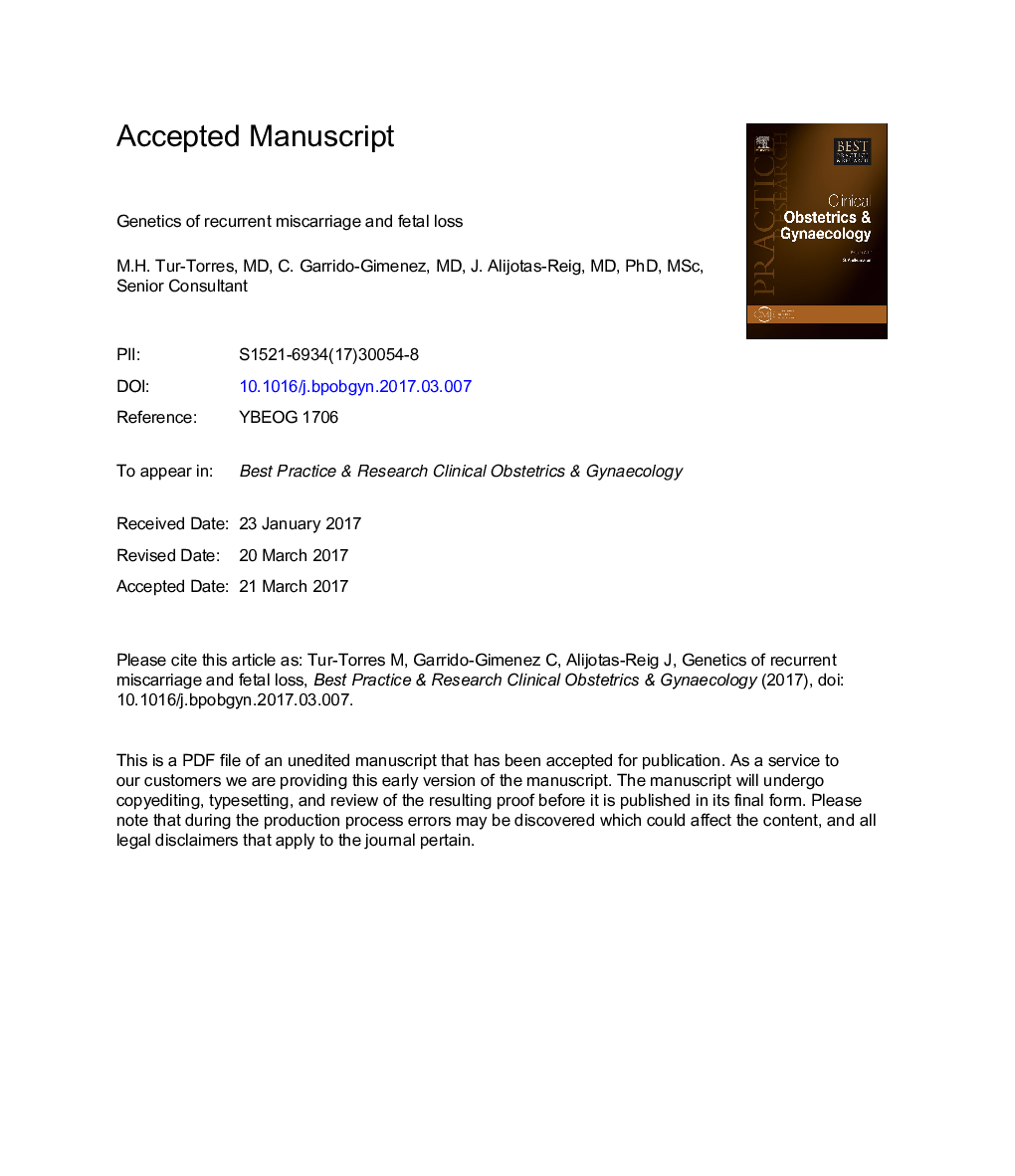| Article ID | Journal | Published Year | Pages | File Type |
|---|---|---|---|---|
| 5690992 | Best Practice & Research Clinical Obstetrics & Gynaecology | 2017 | 46 Pages |
Abstract
Despite years of research, miscarriage, particularly when recurrent, continues to pose a medical challenge. An embryo chromosomal error is responsible for 50-60% of recurrent cases; however, up to 30-50% remains an enigma. Successful pregnancy involves different maternal physiologic changes and certain complex interactions between the fetus and the mother by cytokines, angiogenic mediators and hormones. To date, research lines have focused on genetic and epigenetic polymorphisms related mainly to immune response and inflammatory mediators, and have yielded a significant relationship between recurrent miscarriage and immune mechanisms. Thus, unknown causes of miscarriage could be due to an immune imbalance induced by T-helper Th1/Th2/Th17 cytokines and regulatory T cells. Furthermore, these genes and mediators have long been suspected of being blood markers for the clinical diagnosis and management of miscarriage; however, more evidence is required for them to be included in medical practice and obstetric guidelines.
Keywords
IFN-γPGDCGHMTHFRHLA-GPAI-1RPLcytotoxic T-lymphocyte antigen-4ITGB3FVLBcl-2ACEKDRCyPNOS3qPCRTGF-βCTLA-4Human leukocyte antigen-GAngiotensin I converting enzymerecurrent pregnancy lossinterleukinscomparative genomic hybridizationPreimplantation genetic diagnosisGenetic alterationsrecurrent miscarriageCytochrome P450phosphatase and tensin homologfluorescent in situ hybridizationB-cell lymphoma 2FishMethylenetetrahydrofolate reductaseMicro-RNAsMiRNAChromosome abnormalitiesPlasminogen activator inhibitor type 1Nitric oxidenitric oxide synthasequantitative polymerase chain reactionGenetic polymorphismsPtenKaryotypekinase insert domain receptorGamma-interferon
Related Topics
Health Sciences
Medicine and Dentistry
Obstetrics, Gynecology and Women's Health
Authors
M.H. MD, C. MD, J. MD, PhD, MSc,
